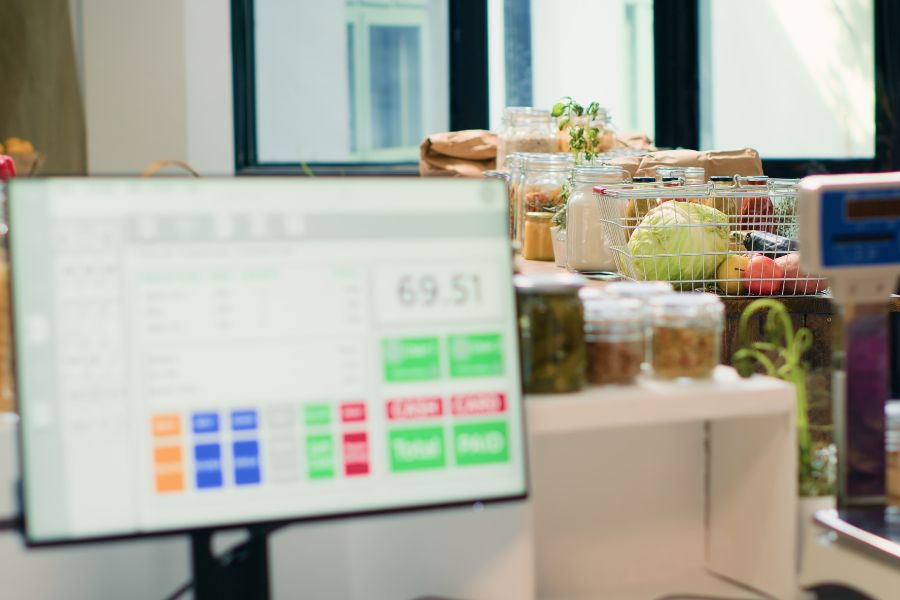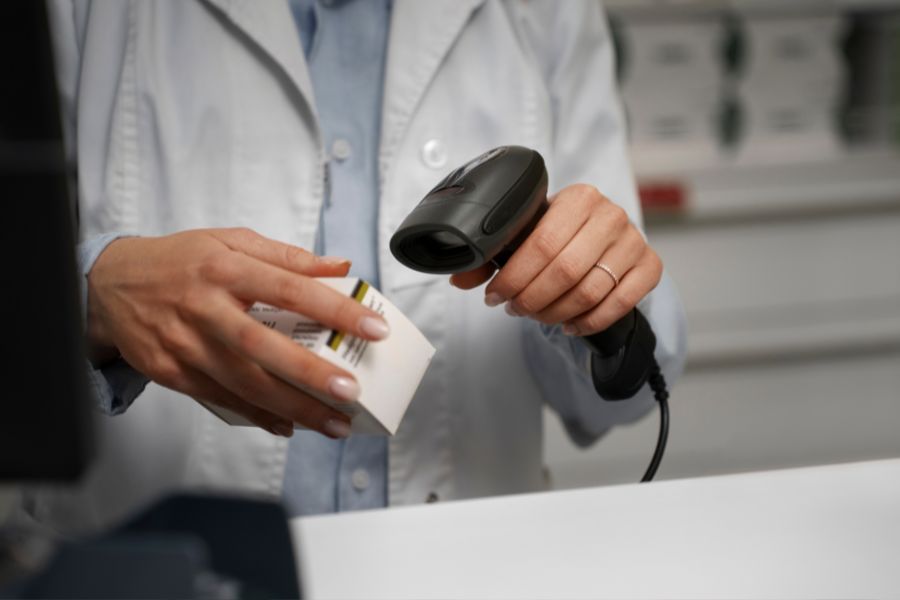In the rapidly evolving landscape of healthcare, efficiency and accuracy are paramount. The integration of Point of Sale (POS) systems within the medical sector has emerged as a transformative solution, revolutionizing the way patient records and billing are managed. This article explores the significance of medical POS integration in seamlessly connecting patient records and billing, paving the way for streamlined operations, improved patient experiences, and enhanced data security.
Features Of Medical POS
A Medical Point of Sale (POS) system is a specialized tool designed to streamline and manage various aspects of medical practices, clinics, and healthcare facilities. It offers functionalities tailored to the unique needs of the healthcare industry. Here are some key features commonly found in a medical POS system:
- Patient Management: This kind of system allows you to create and maintain comprehensive patient profiles. This includes storing personal information, medical history, insurance details, and contact information. This centralized database helps healthcare providers to easily access patient data when needed.
- Appointment Scheduling: Efficient appointment scheduling is vital in medical practices. Medical POS systems enable staff to schedule, reschedule, and manage appointments seamlessly. Some systems even offer patient self-scheduling capabilities through online portals.
- Billing and Invoicing: Medical POS systems simplify billing and invoicing processes by generating accurate invoices based on treatments, procedures, and services provided. They can integrate with insurance systems to calculate patient responsibility and process claims electronically.
- Integrated Payment Processing: These systems facilitate secure payment processing, allowing patients to pay their bills using various payment methods, including credit/debit cards, mobile wallets, and electronic fund transfers.
- Inventory Management: For clinics that dispense medications or medical supplies, inventory management features help track stock levels, reorder supplies when necessary, and prevent stockouts.
- Electronic Health Records (EHR) Integration: Integration with EHR systems enables seamless sharing of patient data between the two platforms, minimizing duplication of work and ensuring accurate and up-to-date information.
- Prescription Management: Medical POS systems can assist in generating electronic prescriptions, sending them directly to pharmacies, and maintaining a record of prescribed medications for each patient.
- Reporting and Analytics: These systems offer reporting tools that provide insights into various aspects of the practice, such as patient demographics, revenue trends, appointment statistics, and more. This information can assist in making well-informed business choices.
- Health Insurance Portability and Accountability Act (HIPAA) Compliance: A medical POS system must adhere to strict data security and patient privacy regulations outlined by the Health Insurance Portability and Accountability Act (HIPAA). This ensures the confidentiality of patient information.
These features collectively empower medical practices to operate efficiently, provide quality patient care, and manage administrative tasks effectively in today’s complex healthcare landscape.
What Factors Should You Look For In Medical POS?
When considering a medical Point of Sale (POS) system, there are several essential factors to take into account to ensure it aligns with the needs of your healthcare facility or practice. Here are the primary aspects you should concentrate on.
Streamlined Online Booking and Scheduling
An adept POS system empowers both doctors and staff, simplifying the process of arranging, canceling, and rescheduling appointments. Additionally, it facilitates the inclusion of patients in waitlists and aids in scheduling follow-up visits.
This eliminates the need for patients to schedule their subsequent appointments during the checkout process. Instead, they can seamlessly coordinate with their doctors, swiftly obtaining answers to availability-related questions without any need for back-and-forth interactions with staff members.
Automated Appointment Reminders
To mitigate the occurrence of appointment no-shows, medical establishments seek efficiency. A well-suited medical POS system automatically dispatches appointment reminders to patients, utilizing their chosen communication channel. This negates the requirement for staff to contact patients through calls, texts, or emails manually. As a result, staff members can redirect their efforts to other pressing tasks, optimizing their time.
Efficient Billing and Payment Processing
One of the pivotal offerings of a doctor’s office POS system is a dependable, secure, and user-friendly point-of-sale system. It also aids in determining appropriate pricing and facilitating adjustments for insurance policies. Modern medical POS systems exhibit versatility in accommodating various forms of payment. This proves advantageous when faced with a diverse array of patient payment methods.
While many patients favor traditional credit card payments, others might opt for online insurance services or digital platforms like PayPal or Apple Pay. The choice of accepted payment methods rests with the establishment. However, it’s essential to select a POS system that aligns with the preferred payment avenues.
Irrespective of the payment medium, the billing software must adhere to stringent security measures, encryption protocols, and PCI (Payment Card Industry) – Compliant safety standards. This establishes a foundation of trust with patients, ensuring the security of both their payment and medical data.
Moreover, a medical POS system significantly alleviates the burden of bookkeeping on employees. This is achieved by instantly updating payment records in a centralized repository, facilitating payroll administration, and computing tax withholdings, all while minimizing the potential for human errors. This not only saves on labor costs but also guarantees precise financial documentation.
How Does A Good Medical POS System Impact Your Patient Records And Billing
A good medical Point of Sale (POS) system can have a significant impact on patient records and billing in a healthcare setting. Here’s how:
Simplifying Daily Operations
An effective POS system greatly enhances the efficiency of various departments within your medical practice. It enables swift payment processing, accurate cost calculations, seamless appointment scheduling, and convenient patient communication. These medical POS solutions are not only portable but also offer an easily accessible and user-friendly interface, ensuring alignment among all staff members, from administrators to physicians. Additionally, the medical software can also be integrated into your mobile devices.
Efficient Management Across Multiple Locations
For medical businesses spanning multiple locations, operating on a large campus, or encompassing diverse medical specialties, the appropriate medical POS system serves as a tool to maintain team connectivity, facilitate updates, and encourage seamless collaboration.
Simplifying Specialist Appointments
A well-suited POS system empowers patients to easily book appointments with specialized physicians within your practice. This is particularly valuable when patients require treatment from physicians with expertise in specific conditions (e.g., dermatology, neurology, cardiovascular issues). Moreover, the right medical POS system provides updated patient charts, electronic health records (EHR), supplementary notes, and healthcare provider details to specialists securely and confidentialy.
Real-time Update
When a medical POS system is linked with patient records, any services or procedures performed are often updated in real time. This means that healthcare providers, administrative staff, and patients themselves can have immediate access to the latest information. This can help avoid duplicate tests or procedures and ensures that all parties are on the same page regarding the patient’s medical history.
Billing Accuracy
Accurate billing is essential for both the healthcare provider and the patient. A good medical POS system can automatically generate accurate bills based on the services provided, ensuring that patients are charged appropriately and healthcare providers are compensated for their work. This reduces disputes and enhances the financial aspect of healthcare operations.
All of these contribute to better patient care, reduced administrative burden, and improved financial management for healthcare providers.
Why You Should Choose ConnectPOS For Medical POS Integration
ConnectPOS offers a comprehensive and advanced Point of Sale (POS) integration specifically tailored for the medical industry, making it an ideal choice for healthcare providers, clinics, pharmacies, and medical supply stores. The solution combines powerful features, ease of use, and specialized functionalities to enhance the efficiency, accuracy, and overall experience of managing medical transactions. Here’s why you should consider choosing ConnectPOS for your medical POS integration:
- Industry Specialization: ConnectPOS is designed with the unique needs of the medical sector in mind. It caters to the specific requirements of healthcare businesses, ensuring seamless integration with medical inventory management, prescription tracking, patient data management, and more.
- Inventory Management: Effective inventory management is critical in the medical field to ensure the availability of essential supplies, medicines, and equipment. ConnectPOS provides real-time tracking of inventory levels, automatically reorder triggers, and integration with suppliers, helping you avoid stockouts and streamline inventory operations.
- Prescription Handling: Medical POS systems require a specialized capability to handle prescriptions. ConnectPOS facilitates the seamless integration of prescription information with the POS system. This feature ensures accurate billing and keeps a digital record of prescriptions, making it easier to manage patient history and comply with regulatory requirements.
- Patient Data Privacy: Medical businesses deal with sensitive patient information that must be kept confidential and secure. ConnectPOS prioritizes data security and compliance with healthcare regulations, offering features like secure patient identification, encryption, and access controls to protect patient data.
- Multi-Location Support: Many healthcare providers operate across multiple locations, such as clinics, pharmacies, and satellite facilities. ConnectPOS allows you to manage all your locations from a centralized platform, enabling consistent pricing, inventory management, and reporting across your medical network.
- Customization: ConnectPOS offers a high degree of customization, allowing you to tailor the system to your specific workflows and requirements. I
- Reporting and Analytics: Detailed reporting and analytics are essential for making informed business decisions. ConnectPOS provides insightful reports on sales trends, inventory turnover, popular products, and more. These insights empower you to optimize your offerings and business strategies.
- Scalability: As your medical business grows, you need a medical POS system that can scale alongside it. ConnectPOS is built to accommodate expanding operations, ensuring that your POS solution remains effective and efficient as your business reaches new heights.
In conclusion, ConnectPOS offers a tailored and feature-rich solution for medical businesses seeking an integrated medical POS system. Its industry-specific features, ease of use, customization options, and emphasis on data security make it a compelling choice for healthcare providers looking to enhance their operations and deliver high-quality services to their patients.
Conclusion
As the healthcare industry continues to embrace technological advancements, integrating POS systems tailored for medical environments stands out as a game-changer. The seamless connection between patient records and billing enhances operational efficiency and contributes to more accurate medical histories, optimized inventory management, and strengthened data privacy. By adopting medical POS integration, healthcare providers can ensure a more cohesive and patient-centric approach, ultimately leading to better healthcare outcomes. Don’t hesitate to reach out to us for any inquiries or consultations regarding ConnectPOS.



